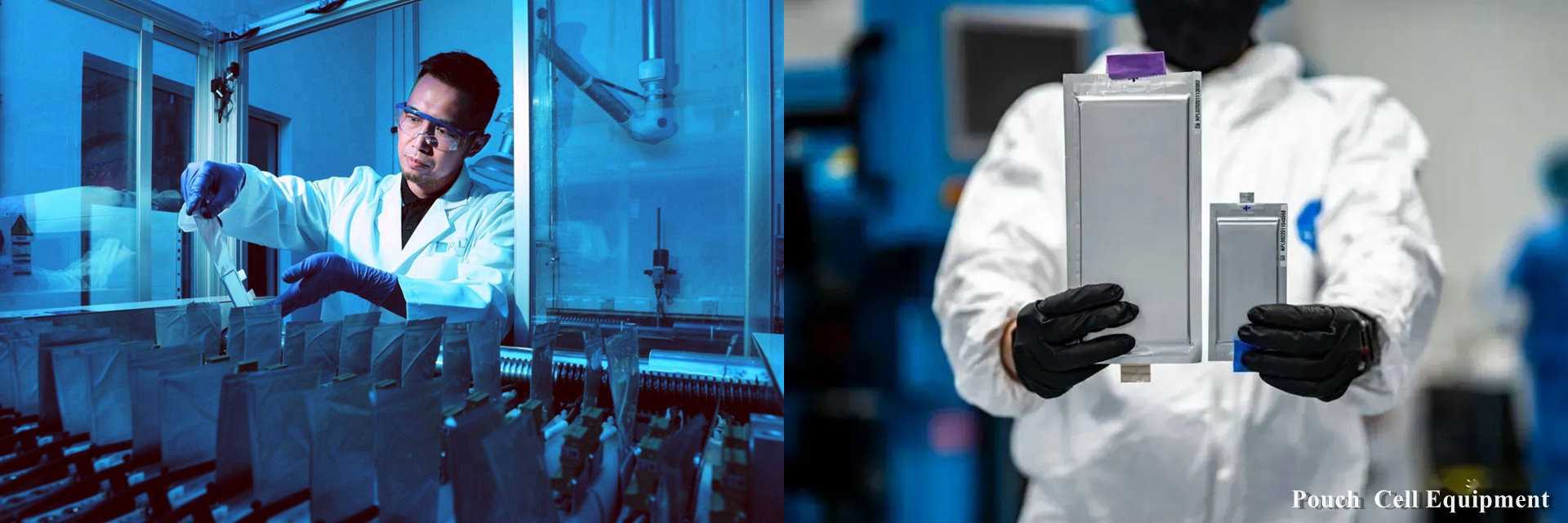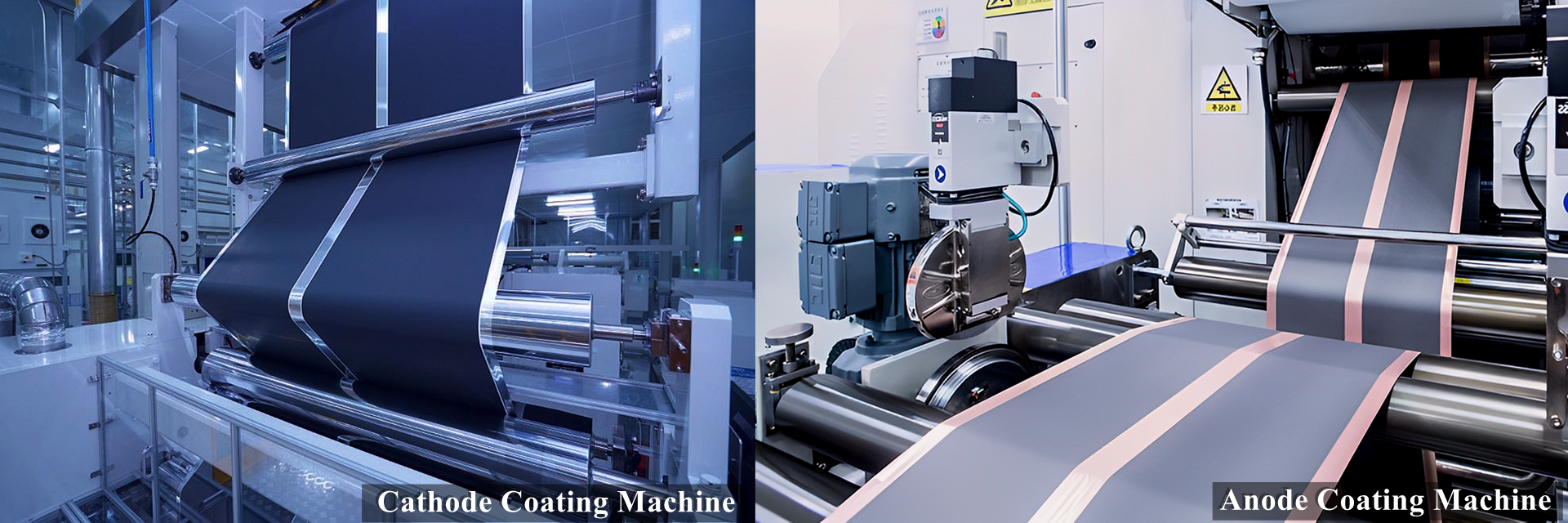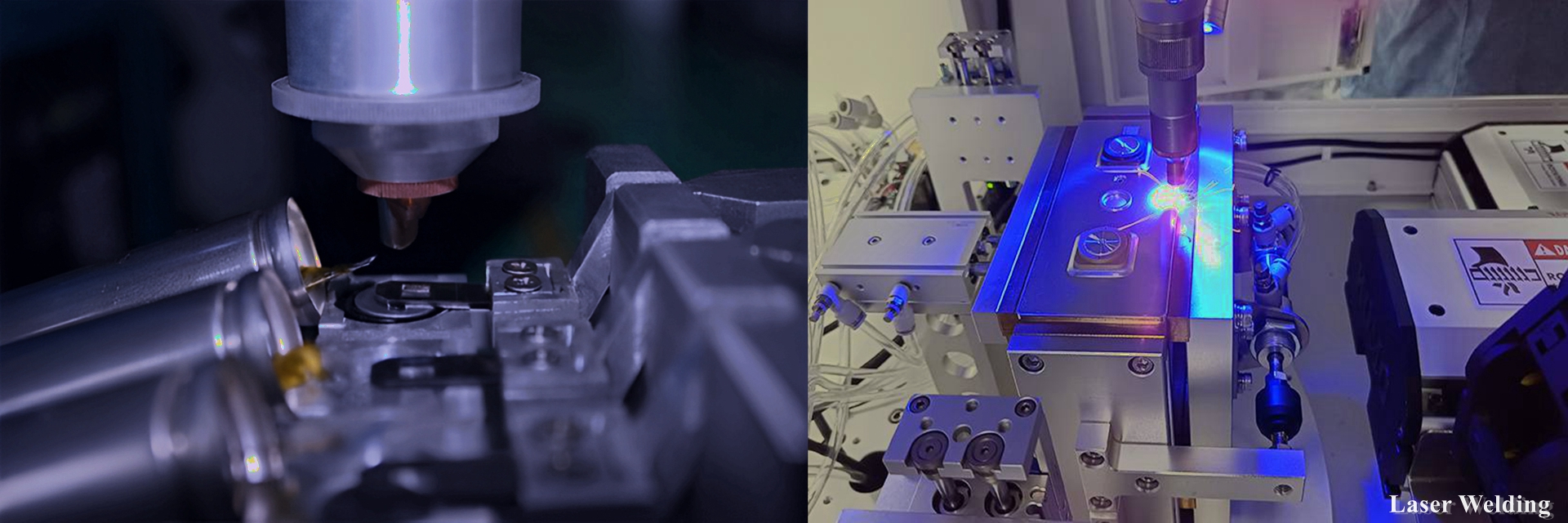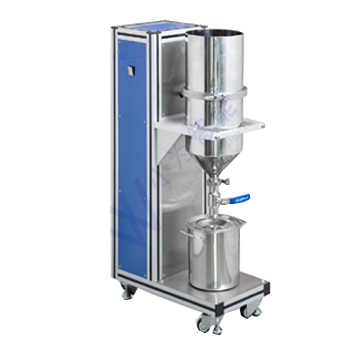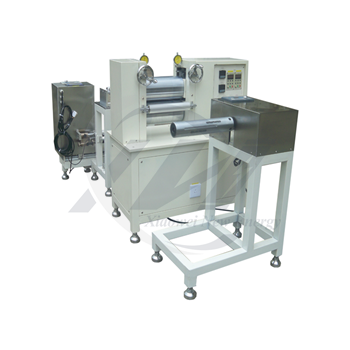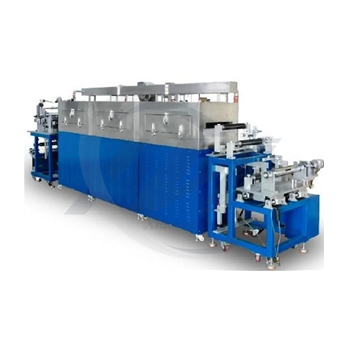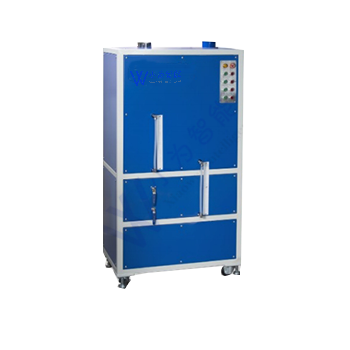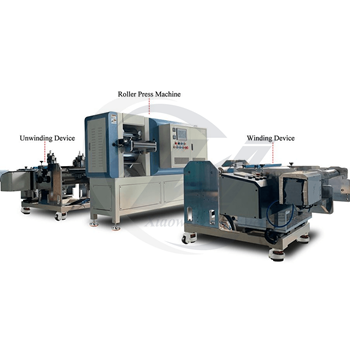Introduce
This filter device is mainly used in the laboratory battery positive and negative slurry filter, the whole machine design is beautiful, flexible and convenient to use.
After the lithium battery slurry is filtered, it is transferred to the slurry feed system to provide filtered battery materials for the coating process.(XIAOWEI More Lab Research Equiment)
Iron removal slurry filtration system
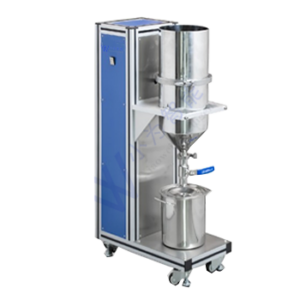
Features
- Equipped with permanent magnet to remove iron particles in the adsorption slurry
- All stainless steel design, good anti-corrosion performance, easy to clean.
- Vacuum system to achieve filtration, can be configured according to the requirements of different mesh through the net.
Main Parameters
- Weight: 30Kg;
- Power supply: AC 220V±10%50HZ;
- Filter screen: recommended lithium battery 80 mesh ~ 120 mesh;
- Optional filter: less than 1000 mesh;
- Capacity: 5L Dimensions: L550xW300xH980mm;
Other supplements
The role of lithium battery slurry filtration: Lithium battery slurry filters can ensure the quality of positive and negative electrode slurries, improve battery manufacturing efficiency, and ensure stable battery performance.
1. Ensure the quality of positive and negative electrode slurries.
- Accurate filtration of particulate matter: There are tiny particles in the lithium battery slurry. These particles can be effectively removed through the filter to ensure the purity of the positive and negative electrode slurries.
- Prevent impurity pollution: The filter can prevent impurities, dust and other pollutants in the air from entering the slurry, ensuring that the battery production process is not affected by external pollution.
2. Improving battery Production efficiency.
- Reduce production costs: Through precise filtration, the scrap rate can be reduced and the efficiency of battery manufacturing can be improved, thereby reducing production costs.
- Extend equipment life: If particulate matter in lithium battery slurry enters production equipment, it may cause wear and tear on the equipment. Using filters can extend equipment life and reduce maintenance costs.
3. Ensure stable battery performance.
- Ensure battery cycle life: The use of filters can avoid the polarization effect caused by the presence of particulate matter inside the battery, helping to improve the battery cycle life.
- Optimize battery performance: The positive and negative electrode slurries are finely filtered to better react with the electrolyte, optimize battery performance, and improve the battery’s energy density and charge and discharge efficiency.
4. Environmental protection and sustainable development.
- Wastewater treatment: The wastewater generated during the filtration process can be treated to avoid environmental pollution and comply with the environmental protection requirements of the electric vehicle industry.
- Resource recycling: The use of filters can reduce the scrap rate, improve the utilization rate of slurry, realize resource recycling, and is in line with the concept of sustainable development.

